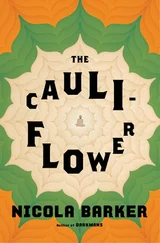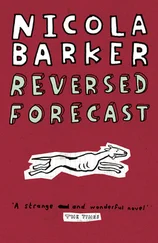One. Two. Three seconds passed by, and then… Fuck. What on earth was he…? Ted blinked and came to as the sharp and piercing gaze of Wesley’s disfavour focussed full upon him; piranha-mouthed, marlin-nosed, pike-eyed… Wesley’s face suddenly seemed as barbed and impenetrable as a razor-wire fence around a missile silo.
Oh bollocks.
Ted allowed himself a single, small, involuntary judder before the inestimably professional estate agent inside him stood to attention, clicked his high-polished heels together, smiled, saluted, and snapped straight back into action.
He rapidly re-assessed the situation. ‘What I mean is that I’d have to run it past Katherine first, before I could actually promise you anything…’ he spoke obsequiously, ‘and you’d be wanting to take a look at the spare room, of course?’
What have I done? he thought. Katherine Turpin will roast me on a spit, cut me into small pieces and devour me… if I’m lucky. Then…
An owl? An eagle owl? Is he crazy?
‘Fine. So run it past her.’
Wesley shrugged — as if he believed no process so mundane as this could hinder the immense rolling stone of his destiny — then slowly began to deflate again, like a cheap plastic paddling pool at a children’s party.
‘And I don’t need to see anything else,’ he added, ‘I’ll just bring the rest of my stuff over later,’ he smiled, ‘about three… three-thirty.’
He held the mango stone creature aloft and inspected it once more, very thoroughly, his cheeks lifted and reddened by a spontaneous glow of good humour. Then his focus shifted.
His expression remained constant — calm, cheerful, insistent — but his eyes now held Ted’s hostage in a penetrating gaze, as his other hand moved down slowly — deliberately — towards his bulging jacket pocket. He rummaged around inside it for a while until he located the particular thing he was searching for and carefully removed it: a clean, white, newly truncated, ten-inch-long lamb’s tail.
Wesley removed the tail with a small flourish, and laid it out gently — almost reverently — onto the workbench. Then calmly, brazenly, he nested that strange mango-stone creature where the tail had formerly been: deep and safe within its own dark stable of itchy tweed.
In a perfect parallel, Ted’s own dear heart gradually descended — down into his shoes, where it continued to beat faithfully, just as before, but closely bound now, and constricted by laces.
Look for love
Where liquid is solid,
Where 62 fell
(46 still to fight for)
From Beaver to Antelope,
From Feather to Bear,
Kick your heels, sucker,
And find nothing there
Dewi came back early for lunch, each weekday, just so that he could watch her. She arrived home at twelve fourteen — twelve seventeen if she stopped to buy smokes on the way — twelve nineteen if there was a queue at the newsagents. She rode a fold-up bike. A Brompton. Tiny wheels. Bright red. It was three years old.
In winter she wore brown lace-up boots and grey woollen mittens: an irresistible combination which never failed to bring the sting of tears to his eyes. He could not think why. It was just one of those things.
She made him feckless and emotional. He was her fool. But he took strength from the fact that he was nobody else’s. In every other respect, he told himself — and others told him — he was a rational man of poise and depth and stature.
Floors were his business. Wooden floors. He prepared them. He restored them. He laid, sanded and varnished them. And he had a sideline in wooden decks, and sheds and verandahs, all of which he designed and then built himself, single-handedly.
He worked hard. Like a demon. He worked until his shoulders locked, until his knees buckled, until his feet swelled and his palms blistered. He believed in work and his work sustained him. It gave him purpose. It gave him nourishment. It gave him reason. And he, in turn, gave it everything.
He embraced activity the way a hungry man embraces his first cup of tepid soup in too many days: with both hands and great satisfaction. He took what he could and was always grateful for it. He had been raised that way: to be proud yet never haughty; to be particular yet never fussy.
He was an old-fashioned creature, by and large, but with exquisitely modern parameters. He liked to do things simply and well, using the same traditional techniques his father had taught him, but twisted, very gently, into the realm of the contemporary. His father had been a boat-builder, just west of Rhyl. His grandfather, too, before him.
He understood wood completely: sheathing, siding, clapboard, cord; walnut, ebony, hickory, beam. He understood wood.
He liked to recycle. He could rip the back and the belly out of an old house (he had deals with local demolition men; they knew his number), the doors, the bannisters, the stairs, the pelmets even (he’d pick the corpse clean and leave it shining — he was meticulous as an ant), and then he’d transform what he’d retrieved into something new.
He tolerated the fashions in flooring, the fads: the pale finishes, the beeswax, the crazy veneers. He was no wood snob, although he knew perfectly well what he preferred, what his tastes were. But he kept his opinions to himself. He was subtle and enigmatic; as discreet as a shadow.
He did not smile secretly over the things people did or said, desired or demanded. He could not sneer. He had mouth and cheeks and chin, like other folk, but no spare space on his face for duplicity. He was straight as the shortest distance between two points.
And yet, for all of his sensitivity, he was not an especially sad or bleak or ruminative character (although others might well consider he had reason to be). He did not mull or muse or muddle miserably through. He was quiet, often. He was calm yet never vacant. He was as sweet and clear as pure rainwater in an ancient well. But it took a special little pail, a strong rope, care, steadfastness, persistence and an awful, long, deep, hard drop before you might finally discover him.
Occasionally, others’ voices echoed down his walls, their cries reverberated, and sometimes pebbles or pennies disturbed the still calm of his surface, made him ripple, briefly. But true and natural light never reflected on his heart. Not a glimpse of it. Not even a glimmer.
He was dark inside, although not in a bad way. He was plain, brown and clean; like peat or coya bark, or fine, rich, fertilizer.
He was just a man, in other words, and nothing less.
They’d been joined by a fourth. The third had been a boy who — Jo couldn’t help thinking — had dramatically overstepped the mark by strolling into the small paved garden, ringing on the bell and then repeatedly hammering with his fist at the window. She’d been alarmed by this behaviour. She’d presumed some invisible rule-book. She’d anticipated complex codes of practice, margins, restrictions, limitations. She’d expected restraint.
Doc also watched the boy closely — a submissive Dennis sitting morosely at his heels — but said and did nothing. When a fourth man arrived though (in his fifties and looking — Jo couldn’t curb the crassness of her assessment — an absolute bloody Trainspotter with his long, grey face, thick glasses, waterproof beanie bearing a preposterous logo — a little fat koala-like creature with the word Gumble written underneath it — plastic rucksack and binoculars), she finally heard Doc mention the boy’s impropriety, and in tones of fairly severe disapproval. They called the boy Patty.
Читать дальше
Конец ознакомительного отрывка
Купить книгу












